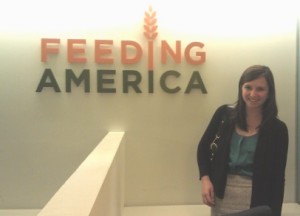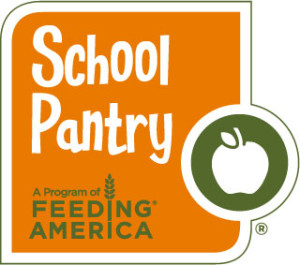
Good Shepherd Food Bank’s latest addition to our arsenal in the fight against child hunger is the School Pantry Program. Using this model, the Food Bank partners with local schools in high need areas of the state to establish a food pantry in the school.
The growth of the School Pantry Program at Good Shepherd Food Bank has been both exciting and unexpected. In the fall of 2012, I was consumed in the research phase of my service position as a Child Hunger Corps Member through ConAgra Foods and Feeding America. During the same time, my supervisor was making connections to pilot our first School Pantry site. As our two initiatives came together we quickly realized the impact that the School Pantry Program could have on the high need target schools that came out of my Needs Assessment.
From there, we hit the ground running. The first wave of start-ups took place in the spring of 2013 and resulted in 6 new School Pantries. Aroostook, Lincoln, Penobscot and Cumberland County benefited from this growth. Additionally, our staff learned invaluable lessons that gave us growth targets to work on over the summer.

This school year has brought new opportunities and growth as well. Since September, we have grown from 7 School Pantries to an impressive 35 serving 11 counties and over 1,300 kids. Word of the feasibility of the program spread fast and we have been receiving calls from prospective schools on a weekly basis.
The most amazing thing about the School Pantry Program is that each school’s model is unique. It is built around the community’s needs, resources and structures. By utilizing the existing organizations within a community, not only does it ease the process of implementing the program, but it also gives the local residents ownership over the program.
Some of the ways in which schools have made the program their own are: hosting healthy food fairs, incorporating service learning experiences for students, and having older kids pack food bags for primary students. Projects like these have had significant impact in reducing stigma and developing a trust between families and the school. Not only does this program provide individuals and families with food, but it educates them about nutrition, social services and specific community resources. I am looking forward to seeing the growth of this program continue, so it can provide community-based solutions to the problem of hunger in Maine.